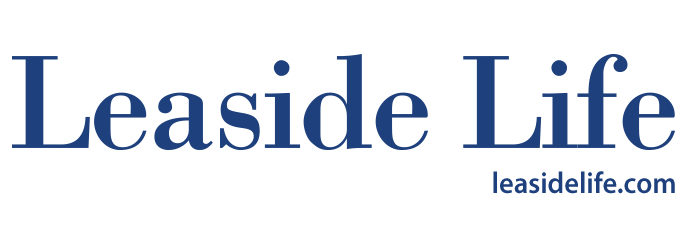From the time she became Ontario’s Premier in 2013, Kathleen Wynne was set on raising the minimum wage. From 2014 to 2107, the minimum wage increase ranged annually between 15¢ and 75¢, which didn’t seem to impact many businesses.
But 2018 was a game-changer with the introduction of Bill 148, otherwise known as the Fair Workplaces, Better Jobs Act 2017. Perhaps the most controversial part of Bill 148 was the minimum wage increase of $2.40, with an additional dollar increase set for January 2019. Compared to past moderate increases, this was projected to be a big hit for some.
Why did Ontario suddenly get a 20% minimum wage hike after years of small incremental changes? Minister of Labour Kevin Flynn told the CBC in December, “The last time we looked at the Employment Standards Act or the Labour Relations Act was in the 1990s. Think about how the world of work has changed for people since then. We knew regulations had to keep up.”
Labour Minister Flynn said the workplace changes were planned months in advance, and only after consulting experts, employees and business owners.
But David Owen, owner of Toronto fish market De La Mer, felt there was “little to no consultation with the business community on how to implement this successfully.” As a constituent who has respectfully asked to meet with Don Valley West MPP Kathleen Wynne on the issue, “an actual response” to those concerns would’ve been appreciated but was not received, he says.

Owen rose from minimum wage jobs in his early days so he knows what it’s like to strive for a decent living. In 2017, he was already paying his staff above minimum wage, but it wasn’t $14 an hour. He said this 20% wage hike in January was “a lot at once,” but he also sees why it’s good for the employees. His major concern is with the media.
“There seems to be the perception that there is a lot of room to absorb this pay increase without raising prices,” he said, but that’s not the case for many merchants in Leaside. “It’s stressful,” he added, “because you have to make choices about things like trimming hours, raising prices or a combination of both. You have to do something.”
Aram Gabrielian, owner of the Armenian restaurant Mayrik on Bayview Ave., agrees. “It’s hard in situations like this because one of two things happen. You’re going to start cutting hours or you pass the increase to the customer.” For Mayrik, the latter was not an option. “Being a restaurant that opened 10 months ago, we can’t introduce price increases.” Now that some time has passed, he said, “overall hourly trimming has been minimal.”

Owen noticed an increase in supplier rates as of 2018 but he understands it’s part of the growing pains of our province. “I think price adjustments would’ve been more gradual, had they slowed it down a bit. It’s been spun that prices shouldn’t have to increase, but a better-informed discussion in the media before the change came into effect would’ve been more helpful.”
Gabrielian has also seen an increase in vendor pricing. “Towards the end of last year, we got a few letters from suppliers saying, ‘to keep quality high and continue our level of service, you will be noticing some price increases.’” He said it’s the cost of business and it’s not worth changing vendors. “If you’re satisfied with the quality of the company’s level of service, you just have to absorb those price hikes. This business is built on relationships.”

Nicole Angellotti, owner of Lit Espresso Bar on Bayview, said they raised their prices for the first time in three years because of the large wage increase. Despite placing a sign in their shop explaining the increase, she said, “I think it came as a small shock to some and I’m sure we lost a few customers because of the increase. We did this so we didn’t have to do anything that would greatly affect our staff, like having to trim hours or let anyone go. The increase was mostly a result of all our suppliers who raised their prices as well. Both at once was just a little too much to handle.”
Are the kids alright?
Like Lit, many Leaside businesses employ students under 18. The Royal Bank of Canada’s December 2017 Provincial Economics Report predicted the wage hike would put “modest upward pressure on the provincial unemployment rate – especially for younger workers – and lead to a reduction in work hours.” When a local business goes from paying minors $10.90 an hour to $13.15 for the same quality of work, it must make some employers wonder if they wouldn’t get better value for their dollar in choosing to hire an adult for an additional 85¢.
David MacDonald, senior economist at the Canadian Centre for Policy Alternatives, told the CBC last August that he saw this pattern when minimum wages rose in other provinces. It happened, people panicked, but when the dust settled, MacDonald said, “there weren’t any major job losses.”
Andy Elder owns the meat shop Grilltime on Laird Drive. Being a small business with fewer than 10 staff, Elder says they know their employees so well that “we know their families too.” He believes you have to pay well to keep good people and that’s why he was already paying above the new minimum wage when January 2018 came around. For Grilltime, payroll was not affected. For Elder, it was his food costs that increased as vendors hiked their prices in January. He said Grilltime tries to support local vendors as much as possible regardless of the increase, but he’s noticed the change in the cost of operations and how it’s influenced his bottom line.

Overall, it seems the majority of Leaside merchants agree with Lit’s Angellotti. “We are very supportive of the minimum wage hike, we want to see everyone earning a fair wage. We think there is still work that needs to be done…that the hike could have been spread out a bit more, like a gradual hike to help small businesses like ourselves cope with the impact.” There is no doubt that Ontario needs to keep up with the Consumer Price Index, but it seems for many businesses, the province is trying to run before asking those on the ground how to walk.


